US government delays decision on North Dakota pipeline
- Published
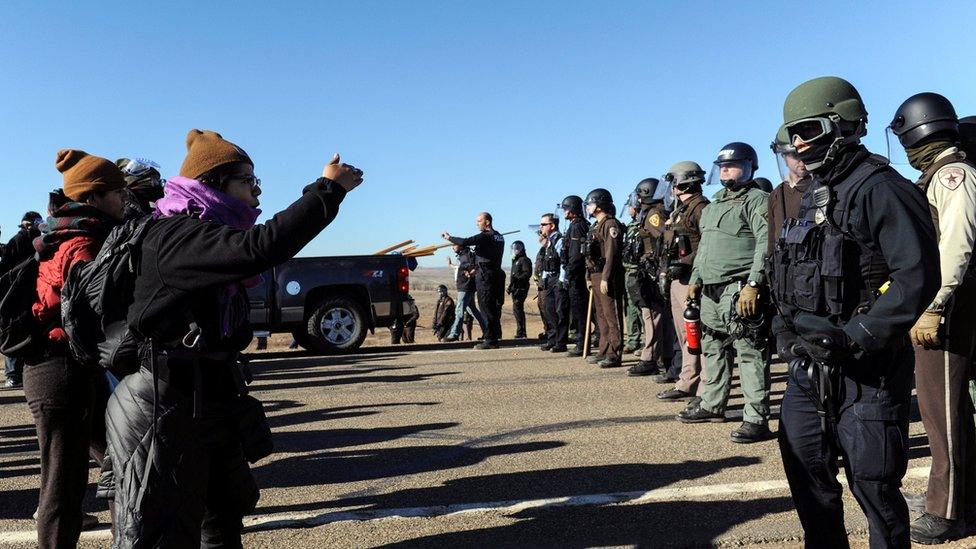
Police face people protesting against the Dakota Access pipeline near the Standing Rock Indian Reservation, North Dakota
The Sioux Indian community says it is "encouraged" by the US government's decision to delay ruling on an oil pipeline project in North Dakota.
The Departments of the Army and Interior, external said they would consult further with local communities on the issue before making a decision.
There have been major protests against the plans in Standing Rock reservation.
The United Nations said security forces had used excessive force against demonstrators, external.
Maina Kiai, the UN Special Rapporteur on the rights to freedom of peaceful assembly and association, called for protesters to be treated humanely.
"Tensions have escalated in the past two weeks, with local security forces employing an increasingly militarised response to protests and forcibly moving encampments located near the construction site," he said.
Hundreds of people have been arrested during the weeks of mass protest over the $3.7bn (£2.8bn) Dakota Access construction project.
A "day of action" is set to go ahead on Tuesday, with groups assembling outside offices of the Army Corps of Engineers, banks and energy companies across the country.
'Motivated by politics'
Standing Rock Sioux Chairman Dave Archambault II said the news of the federal authorities' decision to delay its ruling implied his people were being heard.
"Millions of people have literally and spiritually stood with us at Standing Rock," he said, thanking them. "The harmful and dehumanising tactics by the state of North Dakota and corporate bullies did not go unnoticed because of you."
The community and environmentalists believe the project will pollute water supplies.
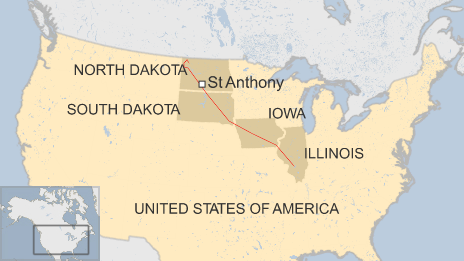
The Army Corps of Engineers had previously given permission for the project, and much of the construction for the 1,172-mile (1,885km) line has already gone ahead.
However, construction company Energy Transfer Partners is still awaiting approval for work under Lake Oahe, which sits beside the Standing Rock reservation.
The Army said on Monday it had decided to consult further with local communities "in light of the history of the Great Sioux Nation's dispossessions of lands" in the country.
But Energy Transport Partners - which insists the project will boost local economies and is much safer than transporting oil by rail or road - expressed dismay at the Army Corps of Engineers' decision.
"This action is motivated purely by politics at the expense of a company that has done nothing but play by the rules it was given," Chief Executive Kelcy Warren told Reuters.
Protesters have been using the slogan #noDAPL to condemn the pipeline project on social media. They also coordinated an online campaign where they encouraged people from around the country to "check in" at Standing Rock on Facebook to show solidarity and attempt to confuse the police on the scene.
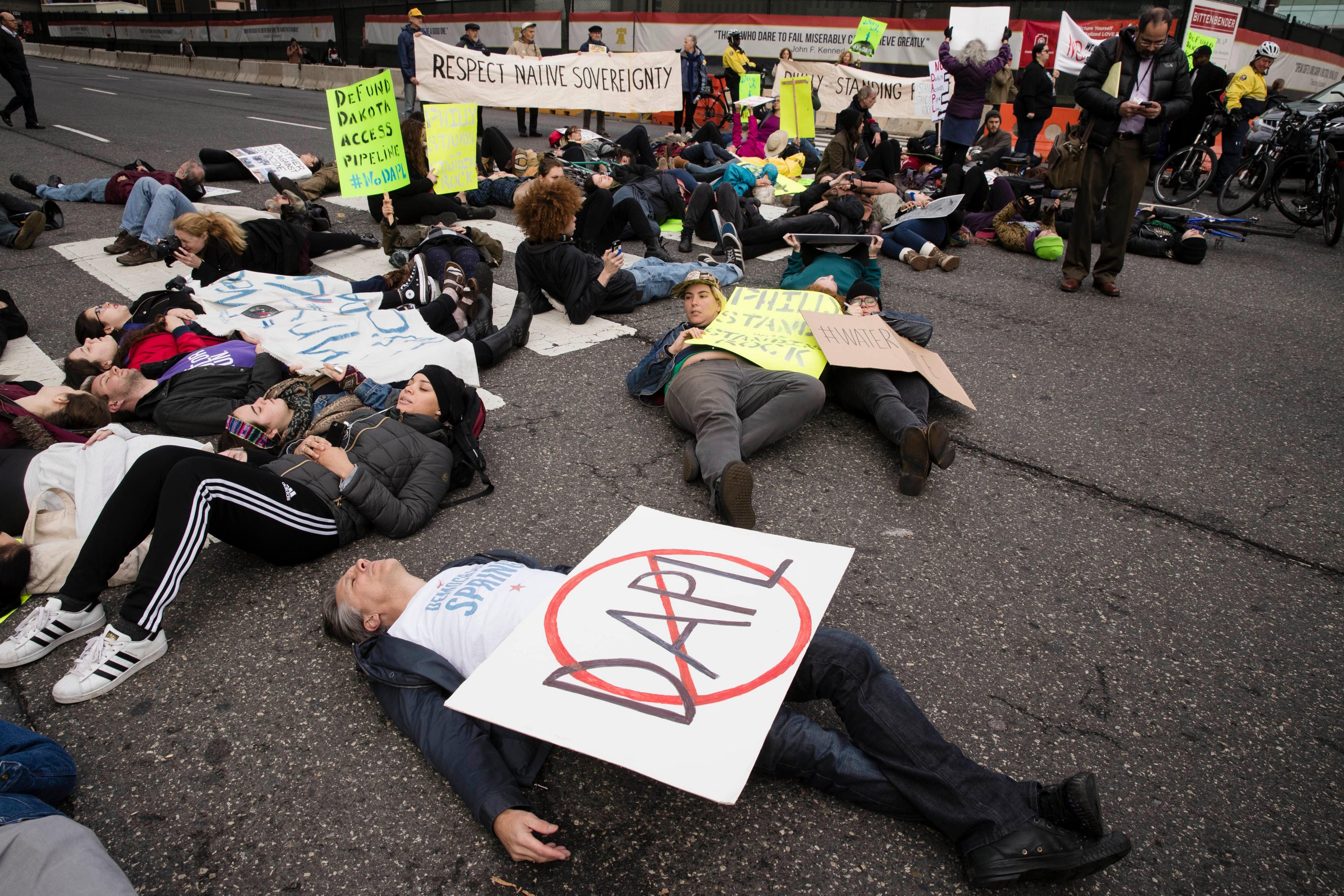
A solidarity protest held in Philadelphia against an oil pipeline project in Standing Rock, North Dakota
- Published1 September 2016

- Published2 November 2016
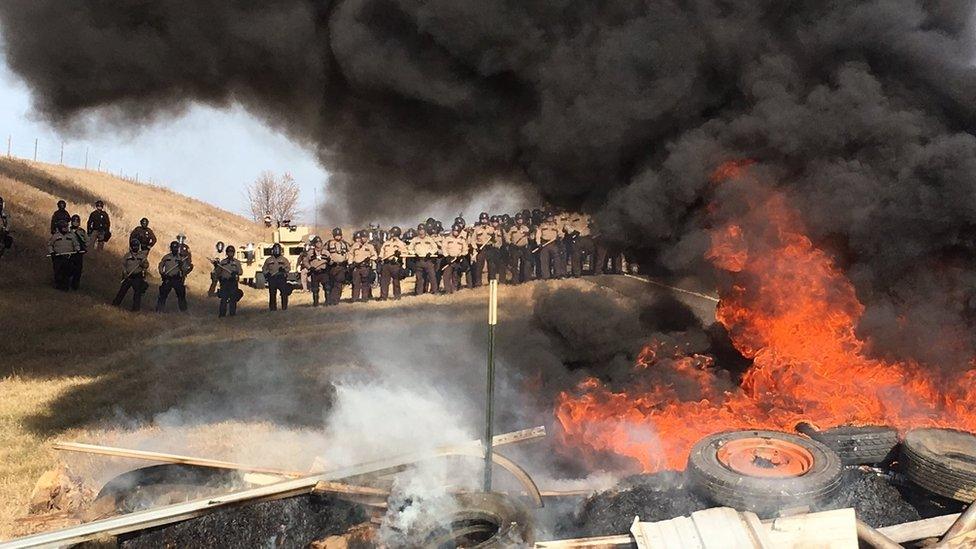
- Published28 October 2016
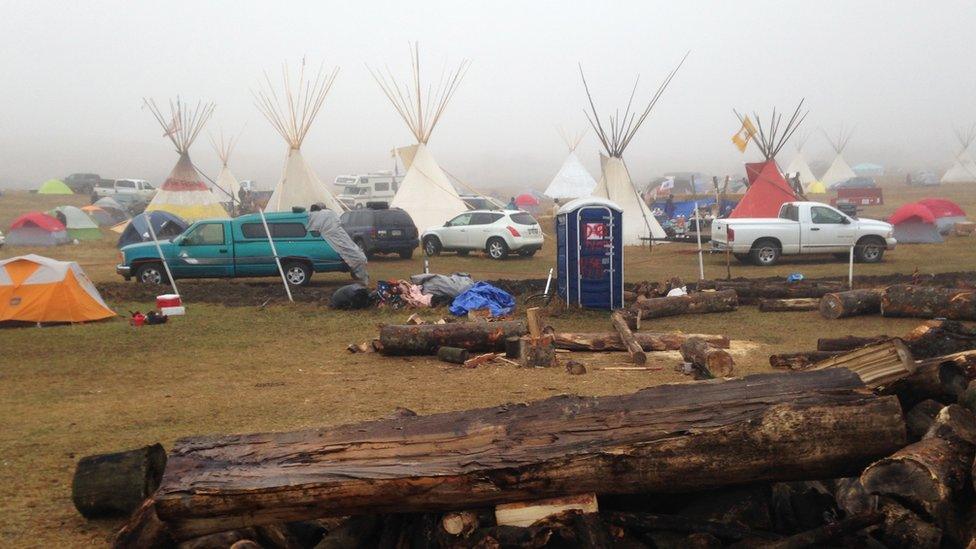
- Published2 September 2016